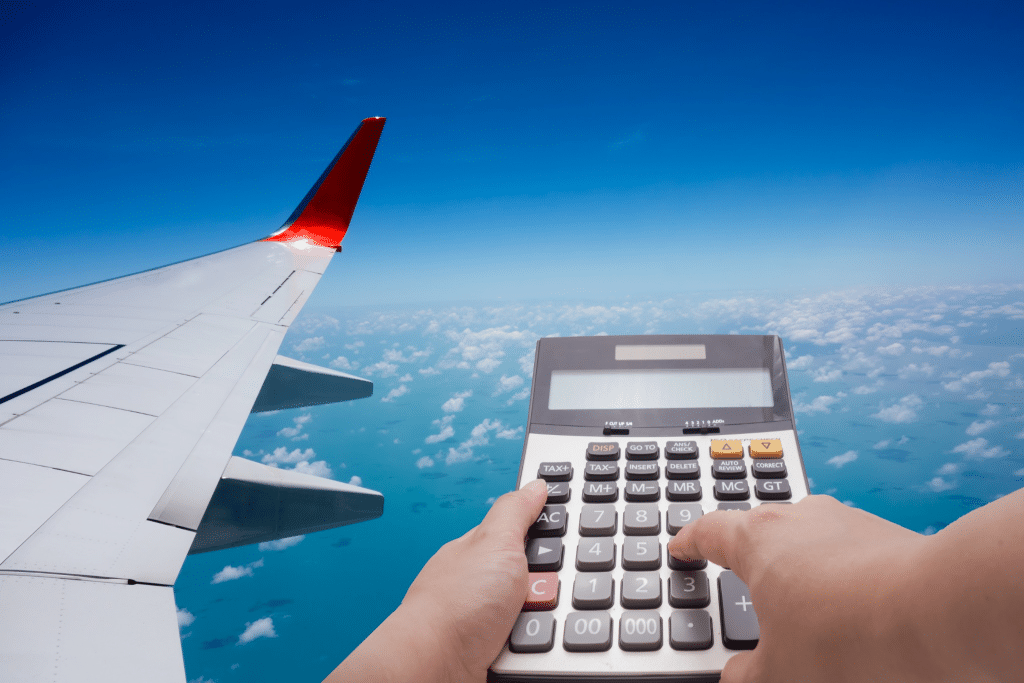You know that feeling when you hit “search” on your favorite travel app and see flight prices swing from affordable to eye-watering in seconds? The truth is, figuring out the best time to book flights can feel like chasing the end of a rainbow—elusive but thrilling.
With myths, data, and “insider” tips everywhere, travelers often end up guessing or second-guessing themselves. But getting the best time to book flights is not just luck. There are real trends, smart strategies, and, yes, some pitfalls to avoid. If you want to save more on your next trip, it’s time to break down the facts, avoid the traps, and start booking flights like a pro.
Why Timing Matters: The Science Behind Airfare Pricing
The quest for the best time to book flights starts with understanding how airlines set prices. Airlines use complex algorithms that factor in demand, route popularity, seasonality, and even your browsing history. They constantly adjust fares—sometimes several times a day—based on how seats are selling.
Historically, there are “sweet spots” for booking. But these aren’t just random guesses. For example, a 2024 study by Google Flights found that prices for domestic US trips were lowest between 21 and 60 days before departure. International flights often follow a different rhythm, with the best deals typically popping up even earlier.
On a budget? Check out these money-saving tips for more hacks beyond just flight timing.

Best Time to Book Flights: Domestic vs. International
There’s no one-size-fits-all answer to the best time to book flights, but the data gives us some pretty good guidelines.
Domestic Flights
For most domestic routes, booking one to three months in advance is your safest bet. If you book too early, you might miss out on sales. Book too late, and prices shoot up as the plane fills.
International Flights
With international trips, airlines release schedules—and deals—much earlier. Booking three to six months ahead is often when you’ll see the lowest fares. For some high-demand destinations (think cherry blossom season in Japan), planning even further out pays off.
Pro tip: Flight prices for holidays and peak travel times can spike up to six months in advance. If you have fixed travel dates, set your alerts early.
Seasonality: When Your Destination Dictates Your Price
Travelers searching for the best time to book flights must consider the destination’s peak and off-peak seasons. Popular tourist spots—Paris in July, Bali at Christmas, New York during Thanksgiving—always see surges in airfare.
Off-peak travel almost always delivers the best deals. Not only do you pay less for flights, but accommodation, tours, and attractions also cost less. If your schedule is flexible, set your sights on shoulder seasons or even low season. You’ll enjoy smaller crowds and bigger savings. CheapAir’s yearly study gives granular month-by-month and seasonal booking recommendations, with easy-to-read charts and real data.
Curious where to go in the off-season? Explore epic destinations that shine year-round.

The Weekly Myth: Is There a Magic Day to Book?
You’ve heard the stories—“Book on a Tuesday,” “Midnight on Wednesday,” “Sunday is the cheapest.” So, is there actually a single best time to book flights each week?
The truth: There’s no universally “cheapest” day to book flights anymore. Airlines use dynamic pricing, and deals can pop up any day of the week. However, some trends show that Tuesdays and Wednesdays occasionally offer slightly lower fares due to airlines adjusting prices after weekend demand. NerdWallet offers myth-busting, practical analysis on weekly trends, perfect for debunking common booking day advice.
The best strategy? Track flights consistently over several weeks. Set alerts with Google Flights, Skyscanner, or Hopper. When a deal pops, grab it. Don’t wait for a magical day—today’s deal might be gone tomorrow.
When Not to Book: The Pitfalls and Price Spikes
Knowing the best time to book flights is half the battle. The other half is knowing when NOT to book:
- Booking at the last minute: Airlines often jack up prices 1–2 weeks before departure, especially on popular routes.
- Booking too early: For most domestic flights, booking more than five or six months ahead rarely secures the best deals.
- Major holidays: Prices are almost always higher for departures around Christmas, New Year’s, and school breaks.
- Popular events: Big festivals, sporting events, or conventions can send fares skyrocketing. Unless you need to be there, avoid these dates.
Need more smart strategies? Visit our travel hacks to avoid common booking mistakes.
The Role of Technology: Alerts, Apps, and Flexible Search
If you want to nail the best time to book flights, make technology your friend. Use fare alerts and booking apps to keep tabs on prices. Flexible search tools let you compare prices across days, weeks, or even months.
Top tools for finding the best time to book flights:
- Google Flights: Track fare history and get alerts when prices drop.
- Skyscanner: Shows cheapest months and lets you search “Everywhere” for inspiration.
- Hopper: Predicts future price trends with a handy “wait or book now” feature.
And remember, always browse in incognito mode or clear your cookies to avoid potential price hikes based on your search history.
Flexibility Is Your Biggest Advantage
Want the best time to book flights? Be flexible—on travel dates, departure airports, and even destinations. The more flexibility you allow, the easier it is to spot genuine deals.
Flexible Dates
Even a one-day difference can mean big savings. Try searching for flights leaving on a Tuesday instead of Friday, or coming back on a Monday instead of Sunday.
Alternative Airports
Major cities often have multiple airports. Compare fares from nearby hubs—it can be cheaper to fly into or out of an alternate airport, even after accounting for ground transportation.
Open-Ended Destinations
Not set on one place? Let the deals guide you. Sometimes the best time to book flights is whenever a flash fare pops up for a city you hadn’t even considered.

Digital Nomads: Mastering the Art of Spontaneous Flight Deals
For digital nomads, flexibility isn’t just helpful—it’s a way of life. If you’re working remotely, you can often swoop on last-minute deals that others can’t. But the best time to book flights for digital nomads is less about rigid rules and more about watching trends, using alerts, and being ready to go.
Looking for nomad inspiration? Dive into our digital nomad tips for smarter, more spontaneous travel.
Price Drops, Refunds, and Fare Guarantees: What You Need to Know
Some airlines and travel agencies offer price drop guarantees. If the fare drops after you book, you might be eligible for a partial refund or travel credit. Always check the terms before you buy.
- Major US carriers: Some let you cancel for free within 24 hours of booking.
- Online travel agencies: Expedia, Orbitz, and others sometimes offer price protection (usually as a paid add-on).
Monitor prices even after booking—especially if you have a flexible cancellation window. A quick rebook could save you cash.
Are Flight Deals Seasonal? A Month-by-Month Guide
If you’re still wondering about the best time to book flights, consider these general guidelines by season:
- Winter: Book domestic flights 2–3 months in advance, international flights 3–5 months out. Avoid holidays.
- Spring: Shoulder season for many destinations. Deals appear 2–4 months ahead.
- Summer: Peak season, especially in Europe and North America. Book at least 3 months in advance for the best fares.
- Autumn: Underrated for many places. Cheapest fares often show up 1–3 months out.
Use this seasonal approach as a baseline—but let data and alerts lead your decisions.
Mistakes Travelers Make When Booking Flights
Travelers miss out on the best time to book flights for a few reasons:
- Ignoring alerts and historical data
- Fixating on a single website or app
- Booking without checking nearby airports or alternate dates
- Assuming last-minute is always cheapest (it rarely is)
- Not clearing cookies or using incognito mode
Avoid these pitfalls, and you’ll be on your way to real savings.

Case Study: Two Travelers, Two Outcomes
Let’s say Ella books her New York to Paris flight 10 months in advance. She ends up paying more than her friend Sam, who waits and books three months ahead when a fare war breaks out. Sam uses alerts, stays flexible, and saves $300 on the same route.
The lesson? Knowing the best time to book flights isn’t about luck. It’s about paying attention to trends, using the right tools, and keeping an open mind.
Booking Smarter, Traveling Better
If there’s one thing every traveler should know, it’s that the best time to book flights changes with the destination, the season, and your own flexibility. The right tools, a little research, and a willingness to adapt can mean hundreds in savings and more adventures on your horizon.
Ready to stop guessing and start saving? Check out Viral Voyage for the latest travel deals, hacks, and inspiration!



